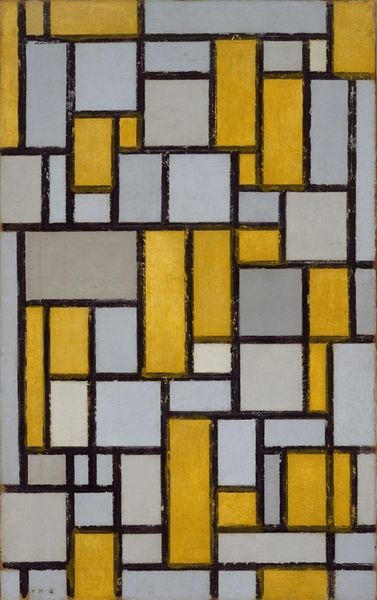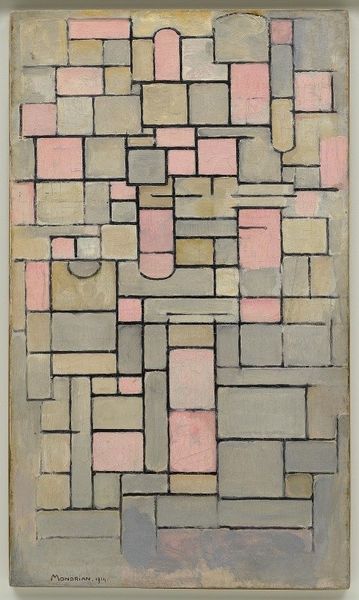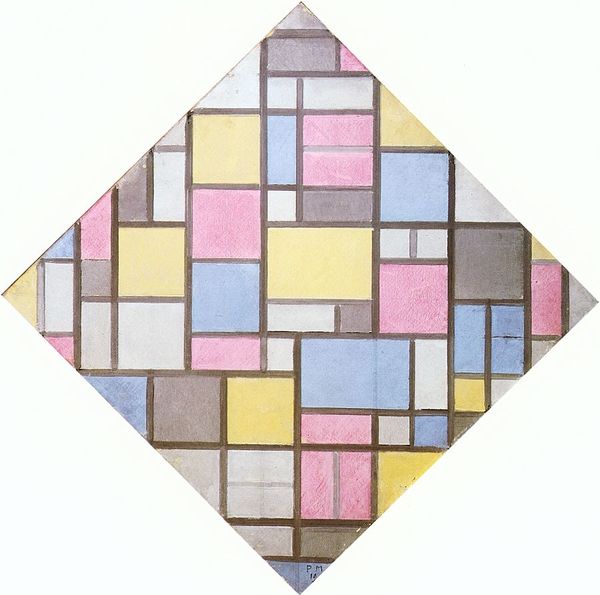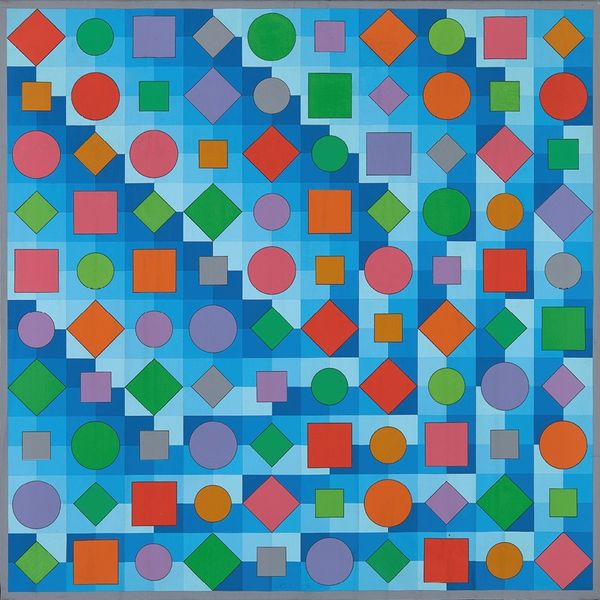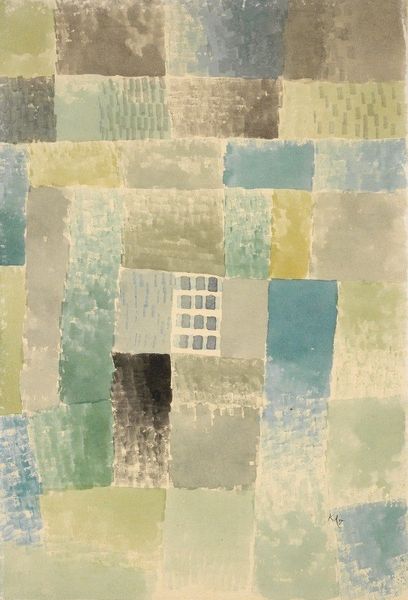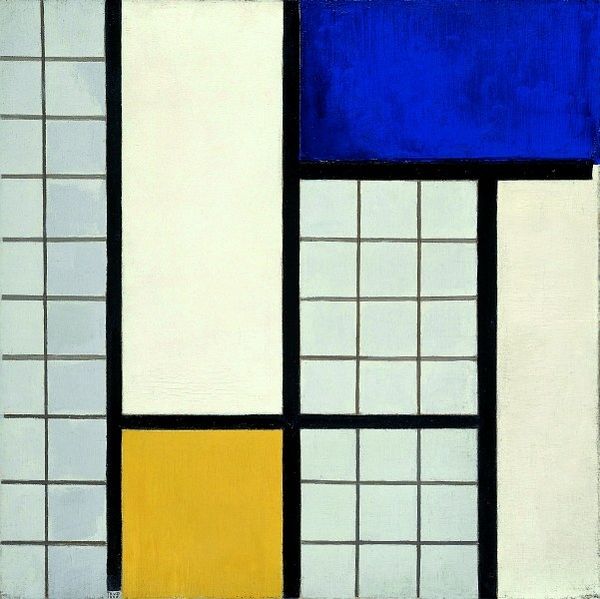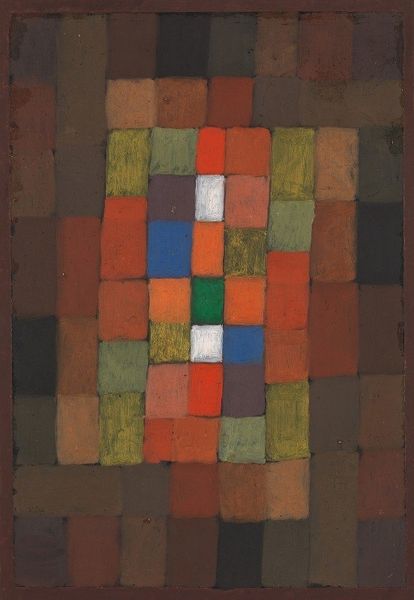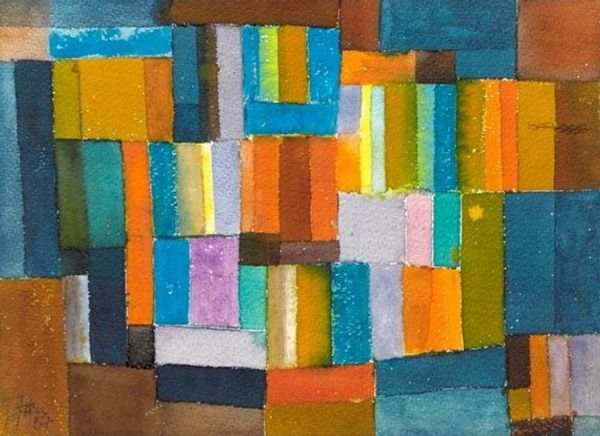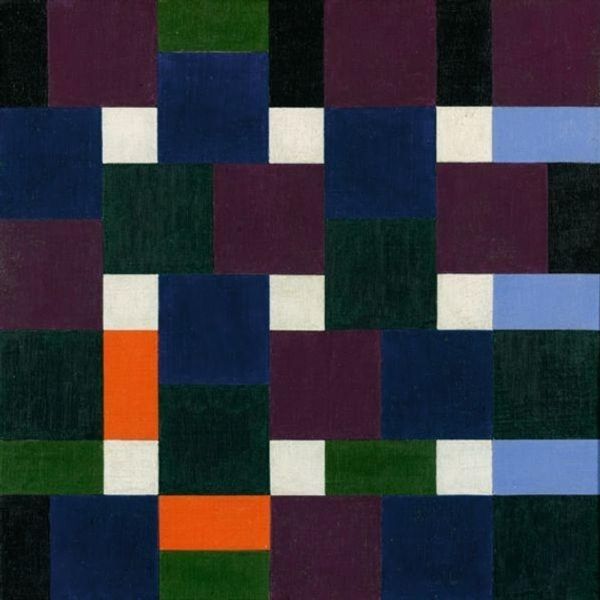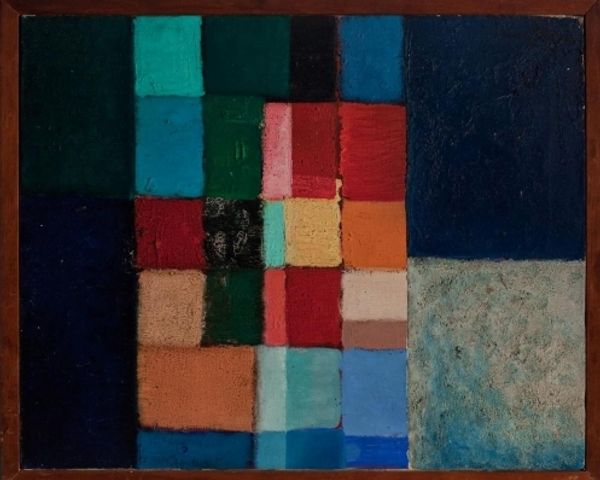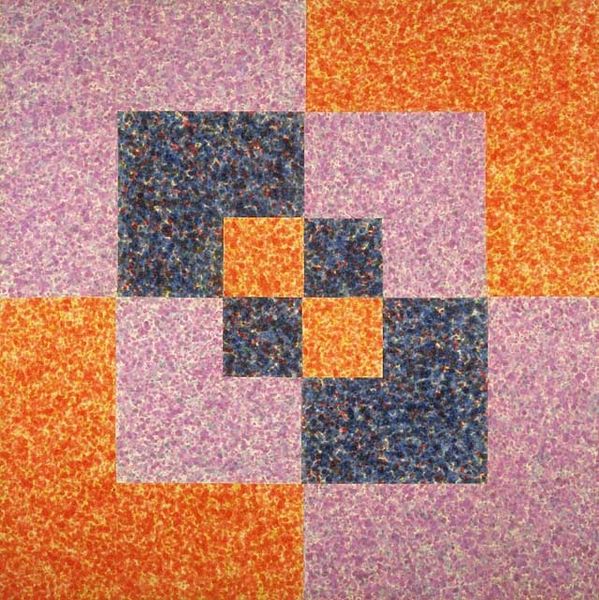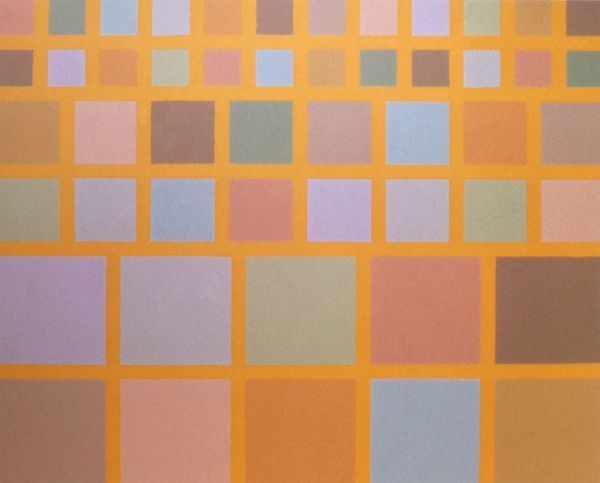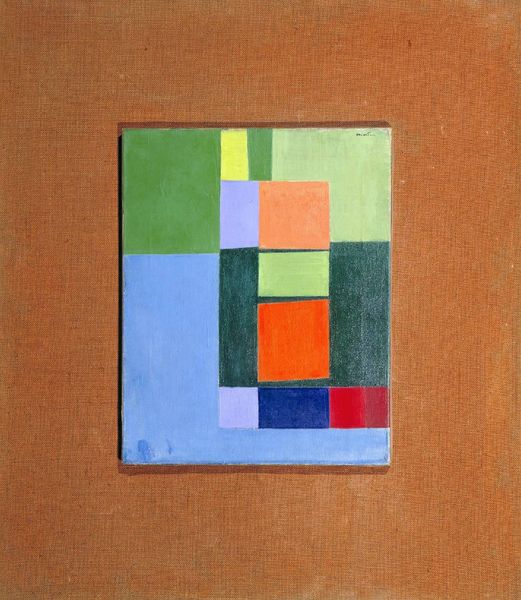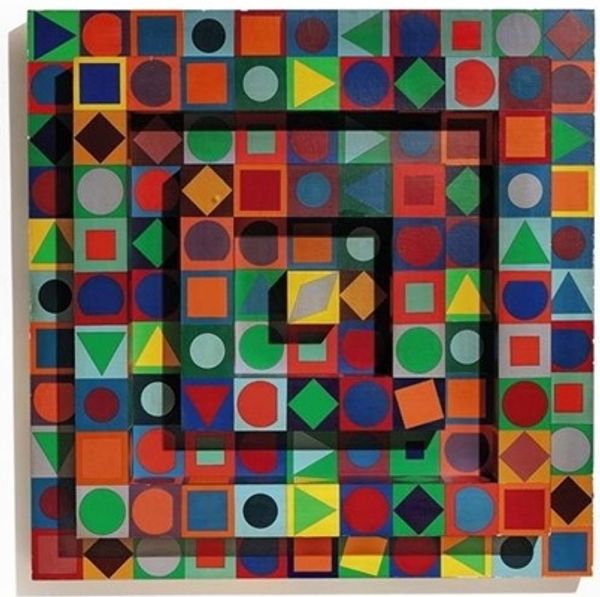
acrylic-paint
#
pattern heavy
#
de-stijl
#
natural stone pattern
#
loose pattern
#
pattern
#
acrylic-paint
#
form
#
geometric pattern
#
abstract pattern
#
rectangle
#
minimal pattern
#
geometric-abstraction
#
repetition of pattern
#
vertical pattern
#
abstraction
#
line
#
pattern repetition
#
layered pattern
Dimensions: 50 x 50.5 cm
Copyright: Public domain
Editor: Here we have Theo van Doesburg’s *Composition XVII*, created in 1919 with acrylic paint. It's striking how these rectangular shapes are assembled. What can you tell us about it? Curator: Van Doesburg's choice of acrylic, a then relatively new material, signals a key departure from traditional oil painting techniques. How do you think the uniformity in surface and color achievable with acrylic paint serves the goals of De Stijl? It allows him to reject any hierarchy of materials. Editor: I see what you mean, it emphasizes the idea of art as a constructed object, drawing attention to its manufacture rather than trying to hide it behind illusionism. How does this fit within the broader social context of the time? Curator: Precisely. Consider the postwar era—artists like van Doesburg aimed to rebuild society through art. His materials—synthetic paint and the mechanical process of applying geometric forms—reflected the emerging industrial age and an attempt to democratize art-making by removing traces of the artist’s hand. Editor: It's interesting how De Stijl artists were concerned with both aesthetic purity and social reform. So, these clean lines and basic shapes aren't just about visual harmony, but also about envisioning a rational, modern world. Curator: Absolutely. They also point to anxieties around industrialisation. The grid imposed here signifies a move away from expressive individuality to mass production and design. Editor: Thinking about it, that really makes you look at these "simple" shapes in a whole new way. Curator: Right? It's not just what’s depicted, but *how* it’s made, distributed, and consumed that adds meaning to art.
Comments
No comments
Be the first to comment and join the conversation on the ultimate creative platform.
